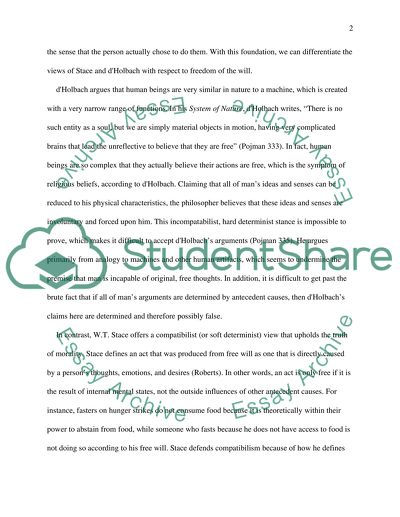Cite this document
(“Do you have free will or are you determined Essay”, n.d.)
Retrieved from https://studentshare.org/philosophy/1417580-do-you-have-free-will-or-are-you-determined
Retrieved from https://studentshare.org/philosophy/1417580-do-you-have-free-will-or-are-you-determined
(Do You Have Free Will or Are You Determined Essay)
https://studentshare.org/philosophy/1417580-do-you-have-free-will-or-are-you-determined.
https://studentshare.org/philosophy/1417580-do-you-have-free-will-or-are-you-determined.
“Do You Have Free Will or Are You Determined Essay”, n.d. https://studentshare.org/philosophy/1417580-do-you-have-free-will-or-are-you-determined.


